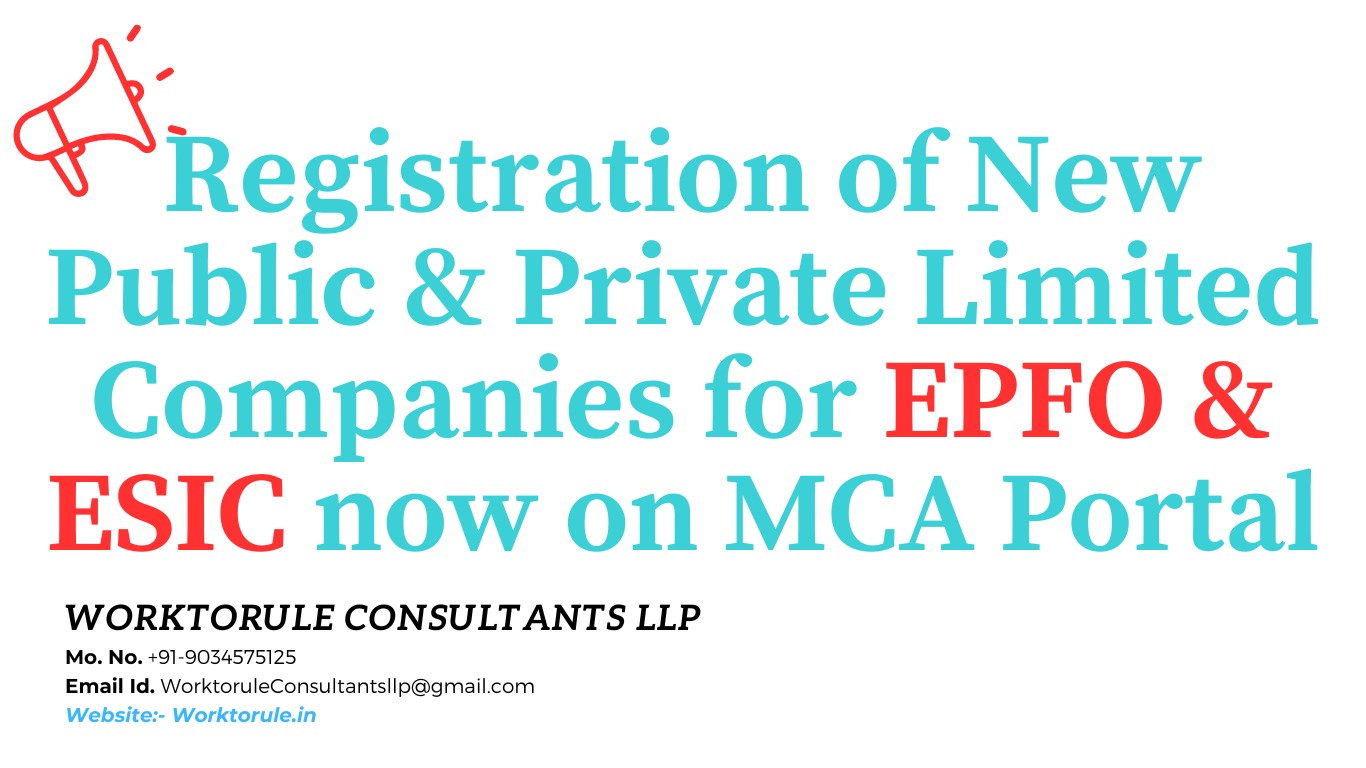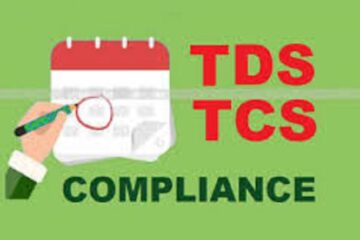In a bid to streamline business operations and enhance India’s positioning in the Doing Business Report 2021, the Ministry of Labour & Employment has undertaken a significant reform to integrate the registration processes for, EPFO and ESIC, with company incorporation. This reform marks a pivotal step towards simplifying administrative procedures and fostering a conducive environment for business growth.
Effective from February 15, 2020, the reform mandates the registration of new Public, Private Limited Companies, and One Person Company for ESIC and EPFO through the Spice+ and AGILE-PRO e-forms of the Ministry of Corporate Affairs (MCA). Consequently, registration for ESIC and EPFO for new companies has been discontinued on the Shram Suvidha Portal. The message conveying this change has been prominently displayed on both the Shram Suvidha Portal and the Ministry of Labour and Employment’s official website.
New Public, Private Limited Companies, and One Person Company are now required to obtain registration numbers for EPFO and ESIC solely through the MCA portal at the time of their incorporation. However, it’s imperative to note that these newly incorporated entities must comply with the provisions of the EPF & MP Act, 1952, and ESI Act, 1948, once they surpass the threshold limit of employment stipulated under the respective Acts.
Amidst these regulatory transformations, businesses may find themselves grappling with the intricacies of EPFO and ESIC compliance. This is where the expertise of WorktoRule Consultants LLP comes into play. WorktoRule Consultants LLP are seasoned professionals adept at navigating complex regulatory frameworks and ensuring adherence to statutory requirements.
Here’s how WorktoRule consultants can assist their clients in navigating the nuances of EPFO and ESIC compliance:
Expert Guidance: Work-to-Rule consultants possess in-depth knowledge of EPFO and ESIC regulations, enabling them to provide expert guidance tailored to the specific needs of their clients. From registration procedures to ongoing compliance, these consultants offer comprehensive support throughout the entire process.
Efficient Documentation: Compliance with EPFO and ESIC mandates meticulous documentation. WorktoRule Consultants assist businesses in compiling and maintaining the necessary documentation, ensuring completeness and accuracy to avoid any potential penalties or liabilities.
Timely Compliance: With stringent deadlines and regulatory obligations, timely compliance is crucial to avoid repercussions. WorktoRule Consultants help businesses stay abreast of compliance deadlines, facilitating timely submissions and adherence to regulatory requirements.
Risk Mitigation: Non-compliance with EPFO and ESIC regulations can expose businesses to significant risks, including fines, penalties, and legal repercussions. WorktoRule Consultants conduct thorough audits to identify areas of non-compliance and implement corrective measures to mitigate risks effectively.
Continuous Support: Regulatory landscapes are dynamic and subject to frequent changes. Work-to-Rule consultants provide ongoing support to businesses, keeping them informed about regulatory updates and assisting them in adapting their compliance strategies accordingly.
In conclusion, the reform aimed at integrating the registration processes with company incorporation represents a significant milestone in India’s journey towards fostering a business-friendly environment. Leveraging the expertise of WorktoRule Consultants LLP can help businesses navigate the complexities of EPFO and ESIC compliance seamlessly, ensuring adherence to regulatory requirements while mitigating risks effectively.


